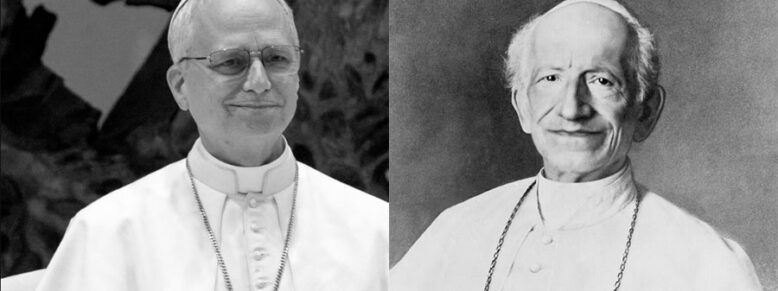In this final part of the encyclical, the treatment and protection of the working class is dealt with directly and at length.
Read more >>A Guide to Rerum Novarum Part Three – The protection of workers, unions and the duties of employers


In this final part of the encyclical, the treatment and protection of the working class is dealt with directly and at length.
Read more >>
To know whether compassion is under threat, we need, firstly, to define it. In the Christian tradition, compassion means to “suffer together with”. It involves entering into the suffering of another. There are classic Christian examples of compassion. Mary shared her son’s agony at the foot of the cross. The Good Samaritan provided the financial means and put himself at considerable physical risk to help the person who had been robbed. St Maximillian Kolbe substituted himself for a condemned father in Auschwitz and, as a result, was condemned to starvation himself, though he actually suffered death from the injection of carbolic acid into his veins.
Read more >>
We ended Part One of this guide to Rerum novarum with the encyclical’s reminder to the rich that they would have to answer to God if they were not generous with their riches. The focus of that first part was the staunch defence of the right to property. This part will look at the relationship between the state, the family and the Church and the responsibilities we have to the poor.
Read more >>
Upon his election, Pope Leo XIV said that he was inspired to take the name “Leo” by Pope Leo XIII’s work on Catholic social teaching. The newly-elected pope especially mentioned Pope Leo XIII’s encyclical, Rerum novarum. Pope Leo XIV related this to the current need to think about things afresh given the development of artificial intelligence (AI). This series of three blogs explores Rerum novarum. It is a radical and holistic call to orientate our whole lives towards God – including in the political, economic and social sectors. To try to distil it for its proposals, as many do, in the political, economic and social domains alone and to take it outside its religious context leaves it stripped of its essence.
Read more >>
In this blog post, first posted on the Centre for Enterprise, Markets and Ethics blog, Neil Jordan discusses the risks of de-humanisation from the use of AI in HR processes
Read more >>
The idea that government should be based on Christian principles is continually under attack – not least on several occasions in the assisted suicide debate. Not only is that proposed law itself incompatible with Christian principles, but many of those proposing it have suggested that Christians should not be involved in the debate or that Christian principles should not determine our views on the issue.
Read more >>
I welcome the addition to the calendar of a ‘Jubilee for Entrepreneurs’ by the late Pope Francis. As the Holy Father noted in his encyclical letter on fraternity and social friendship, Fratelli Tutti, “In God’s plan, each individual is called to promote his or her own development, and this includes finding the best economic and technological means of multiplying goods and increasing wealth.”
Read more >>
As we continue to pray for Pope Francis through the Novemdiales – the period of mourning after the death of a pope – we also celebrate his legacy. Pope Francis was committed to upholding the dignity of workers and, with modifications, the ‘Jubilee for Workers’ and the ‘Jubilee for Entrepreneurs’ are both going ahead at the start of May.
Read more >>
In the coverage of the passing of Pope Francis to eternal life, surprisingly little has been said about an important aspect of Pope Francis’s social teaching – fraternity. This was the theme of his second social encyclical, Fratelli tutti. It is an important theme because it links the pastoral, spiritual, theological and social teaching of the late pope. The title of Fratelli tutti in English is “Brothers All”, and it is subtitled “On Fraternity and Social Friendship”.
Read more >>
Recent media coverage promoting assisted dying clearly demonstrates a significant problem with perceptions on the current proposals to change the law. To garner support for assisted dying, media stories and celebrity interviews already refer to situations that lie well beyond the scope of the proposed assisted dying legislation. As a result, we may be marching towards the inevitable expansion of assisted dying to include death on request, based on feelings of pity, and in situations not confined to the request of the patient.
Read more >>